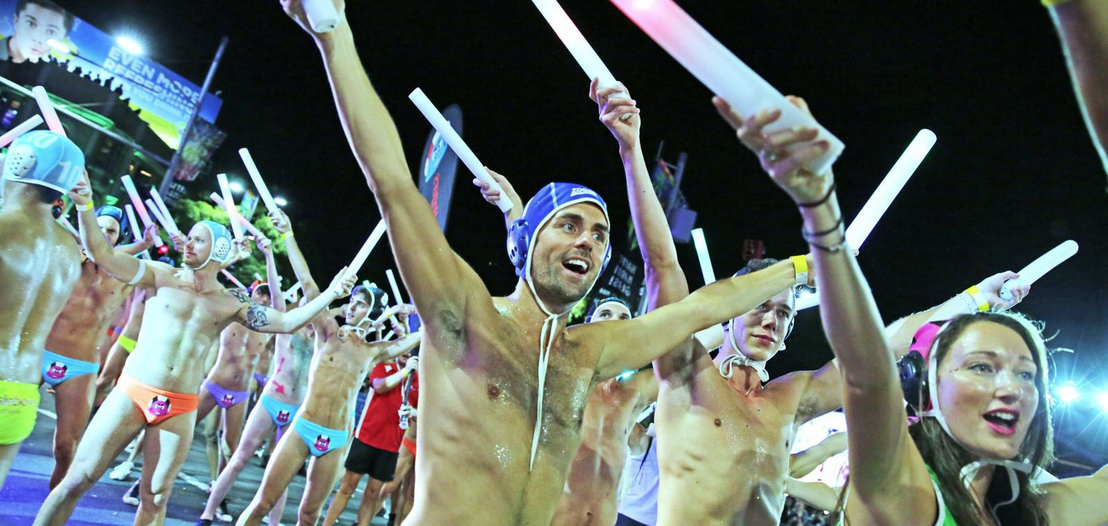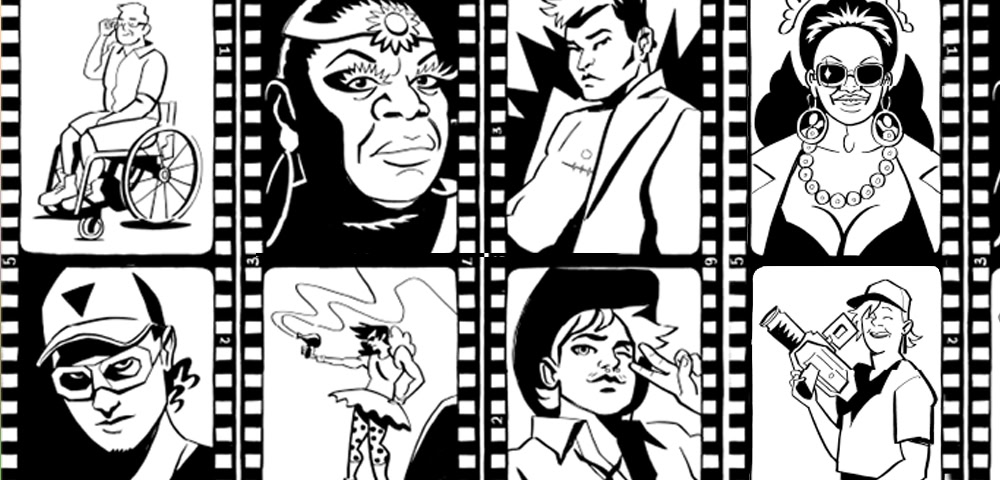
New research says Mardi Gras fundamental to identity of LGBTI Australians

NO matter where LGBTI people live in Australia, Sydney’s Gay and Lesbian Mardi Gras celebration plays a crucial role in the formation of their identity and has even been responsible for breaking down homophobia within families.
These are some of the early conclusions from a national oral history project looking at the experiences of gay Australians across the generations which the Star Observer has been given exclusive access to.
The project, being conducted by Macquarie University with the universities of Queensland and Melbourne and the National Library of Australia, is the largest of its kind ever undertaken in the country, consisting of interviews with more than 80 LGBTI people between 20-93 years of age.
Dr Shirleene Robinson of Macquarie University said the project would give an insight into the recollections of people across the decades, many of who remember homosexuality being illegal.
However, Robinson said she was surprised that Mardi Gras kept cropping up in people’s memories – even if they’d never visited Sydney.
“There hasn’t be a single interviewee who hasn’t had an opinion on or engaged with Mardi Gras in some way,” she said.
She cited the experience of one interviewee in his 40s, who said of Mardi Gras: “I just had to do it. I was surrounded with an amazing feeling of pride and love; I was just beaming with happiness because… there were so many people celebrating life and sexuality… It’s enormous and so important because it sends a message to young people that are struggling.”
Another interviewee said he had been in the closet for many years but seeing Mardi Gras on TV gave him the confidence to come out.
Robinson said the TV coverage also slowly changed the bigoted views of an interviewee’s family.
“One participant lived in a rural area with a homophobic family and it was broadcast on TV and his father made some homophobic comments,” she said.
“But later, his father said it looked like fun and it gave him a way of talking about it.
“Because of the coverage, the participant knew it was possible to live a life where you could celebrate your sexuality.”
Robinson said she assumed that older people and those who lived in regional areas – who didn’t have many visible LGBTI role models – would have more of an attachment to Mardi Gras while city dwellers and young people would be more cynical.
However, this wasn’t the case.
“That’s not coming through – what is, is the valuable role it plays in opening up discussion on LGBTI issues,” she said.
Robinson added that for many younger people, Mardi Gras is a right of passage: “Someone in their early 20s saw it as something you had to go to, to be part of the community – and she lived in Perth.”
While not everyone’s view on Mardi Gras was positive – comments included that it was too big or turned LGBTI people into a spectacle to be stared at – opinions on the event were far stronger than for other gay celebrations.
“Some people have participated in local marches but Mardi Gras has a really special role to play,” Robinson said.
“From people in retirement homes in Launceston to cattle properties on the outskirts of Adelaide, there is something to do with Mardi Gras’ scale, what it represents and the way people saw it growing up.
“It is political, it is commercial, it is community… and it’s really important to the Australian idea of being lesbian and gay.”
The project’s full findings will be released later this year and archived at the National Library in Canberra.










Are you looking like ronald mcdonald on acid this year uncle mark??
Good Dance Party no matter which way you cut it and we love to go to the parade.
Important news for you Ali Adelpour Stefan Bojanic Theodore Fredrick Chalmers III Daniel Gadd Rowell Jauco
It needs to be on free to air…!
Too many miss out
It is on broadcast on SBS TV this year Doug
Thanks :)
C.Moore Hardy this is what I was talking about
It’s not fundamental to mine. I’m glad we live in a time and place that it can happen but that’s all it means.
It’s the biggest festival in the sth hemisphere :D
Agree Cassandra Jones
Speak for yourself…not my identity
So change the bloody name back
Ken the cutest ever
I think it goes back to the history of how it began.
i do not identify with men in speedos with a “look at moi” mentality.
You don’t have to you can Identify with one of the other groups in the parade or you can choose not to identify with any of them and march to the beat of your own drum thats what Pride is about. :)
My gripe is that the nude, muscular, youthful body as the golden calf of events like this.
Lighten up :-)
Yeah, Moses should have taken a chill pill ;)
Pity that most aussie straight guys are shockingly homophobic – fucking idiots.
That’s a bit generalising. Most of my mates are straight and very accepting. I think you need to mix with better straight dudes.
I live in NZ, most of my straight mates in Aussie get grief from their other mates about being friends with a fag
Bullshite! I find NZ men more homophobic, go play with your sheep!
Well, that is a surprise!
Its official Sydney Stingers Waterpolo are the face of Sydney Gay & Lesbian Mardi Gras